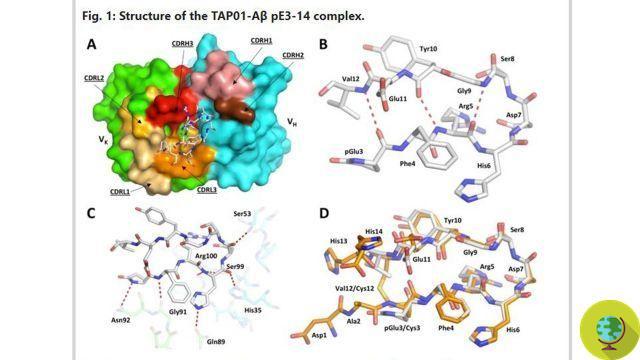
Alzheimer's: A protein could aid memory. It would be the p38γ kinase and its ability would be to have a protective effect against memory deficits.
Don't store avocado like this: it's dangerousalzheimers: one protein could help memory. It would be there p38γ kinase and its ability would be to have a protective effect against memory deficits.
This is supported by a study by researchers from the University of New South Wales who, with the Neuroscience Research Australia group, have identified precisely that protein that is dispersed as Alzheimer's progresses. When, however, the amino acid is reintroduced into the brain, it "protects" from memory deficits.
READ also: ALZHEIMER: SYMPTOMS, CAUSES AND TREATMENT
Scholars have examined thehippocampus, which is involved in memory, and the prefrontal cortex, which is the key to cognition, and by studying human brain tissues they have identified the protein kinase p38y, which is lost as Alzheimer's evolves.
"This study completely changed our understanding of what happens in the brain during the development of Alzheimer's disease," says Lars Ittner, lead author of the study. Alzheimer's is characterized by two peculiarities: the presence of protein plaques (based on beta-amyloid) and the appearance of real "tangles" based on tau proteins in the brain. All of this leads to cell death, brain atrophy and memory loss.
If until now scientists had been convinced that beta-amyloid proteins caused a modification (the so-called "phosphorylation") At the level of the tau protein, resulting in cell death and the development of Alzheimer's disease, the results of the new study now suggest that tau phosphorylation initially has a protective effect on neurons, made impossible by beta-amyloid until it is progressively lost. .
READ also: CANNABIS CAN CURE ALZHEIMER
“We found that p38γ soon vanishes in the brains of people with Alzheimer's, causing it to lack protection,” says the expert. “Part of our study involved the reintroduction of p38γ and the increase in its activity. S can avoid memory deficit, so the protein has real therapeutic potential. If we are able to stimulate its activity, we may be able to delay or even stop the progression of Alzheimer's disease ”.
Another step forward, therefore, towards the treatment of a multifaceted disease for which, despite numerous studies, a specific therapy does not yet exist. In principle, even with regard to Alzheimer's there is talk of early treatment: it seems, for example, that already following the Mediterranean diet keeps the Alzheimer's risk away for as long as possible. There are many investigations that lead to think that reduce inflammation that leads to Alzheimer's is possible, but there is still a lot to do.
Germana Carillo


























